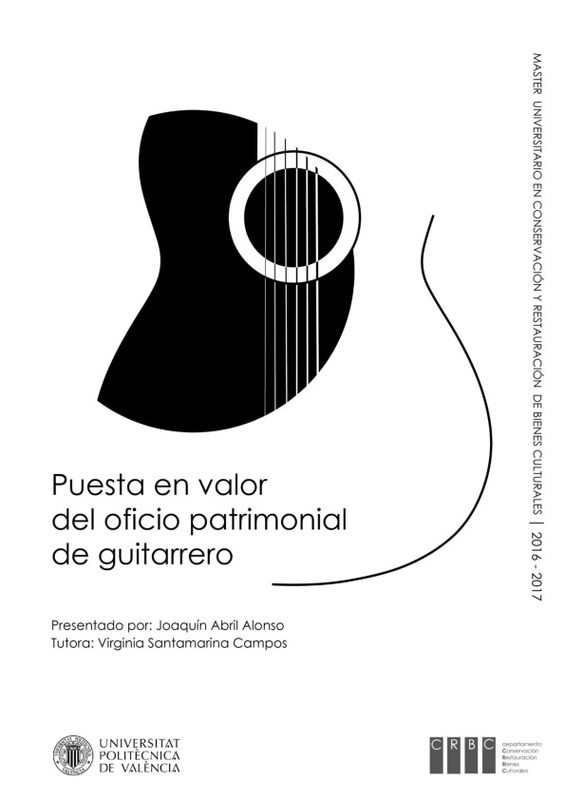|
Resumen:
|
The popular and cultural traditions of a society are the links between individuals and are also the best ways of expressing the collective identity of peoples and communities. Traditions such as festivals, religious rites, ...[+]
The popular and cultural traditions of a society are the links between individuals and are also the best ways of expressing the collective identity of peoples and communities. Traditions such as festivals, religious rites, music, gastronomy and crafts are included in the intangible cultural heritage. The making of guitars is shown to be in this thesis part of this intangible heritage. The guitar is the most popular and symbolic musical instrument in Spanish culture and its not in danger of disappearing, however the industrialization of its manufacture jeopardizes the survival of this traditional craftsmanship, its techniques and the knowledge acquired and transmitted by the master craftsmen. This traditional job is valued in this thesis by its registration in several workshops in Valencia. The first patrimonialization of this craft has been done in Andalucía, where two handcraft workshops are included in the Andalusian list of Intangible Heritage, another example is the Traditional violin craftsmanship in Cremona (Italy), inscribed in 2012 in the Representative List of the Intangible Cultural Heritage of Humanity.
[-]
Las tradiciones populares y culturales de una sociedad conforman los nexos de unión entre los individuos y constituyen una de las principales expresiones de la identidad colectiva de los pueblos y comunidades. Manifestaciones ...[+]
Las tradiciones populares y culturales de una sociedad conforman los nexos de unión entre los individuos y constituyen una de las principales expresiones de la identidad colectiva de los pueblos y comunidades. Manifestaciones como las fiestas, ritos religiosos, música, gastronomía o técnicas artesanales forman el conjunto de estas tradiciones a las que se denomina patrimonio inmaterial. En la presente tesis se trata el oficio de guitarrero o constructor de guitarras como parte de ese patrimonio. La guitarra es uno de los instrumentos musicales más popularizados y simbólicos de la cultura española y aunque su uso esté lejos de desaparecer, la industrialización de su fabricación si que pone en peligro la pervivencia de una artesanía tradicional, con sus técnicas y conocimientos adquiridos y transmitidos durante generaciones por los maestros guitarreros. Con esta investigación se pretende realizar una puesta en valor del oficio artesanal mediante su registro e inventariado en varios talleres valencianos, y así abrir una puerta a su patrimonialización siguiendo los pasos de la Comunidad de Andalucía, en la que han sido incluidos en la Lista de Patrimonio Inmaterial Andaluz dos de sus talleres, o de la fabricación artesanal de violines en Cremona (Italia), incluida en la Lista representativa del Patrimonio Cultural Inmaterial de la Humanidad en 2012.
[-]
|







